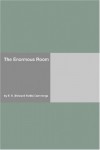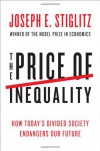52
Followers
3
Following
Wounded Child Prostitute
I like some people so much, their whole way, and being, that I can't say a word for fear of wrecking it. So if you see me standing across the room, not looking, I'm probably in love with you. Damaged, benzo surfer...
Currently reading
Why We Love Sociopaths: A Guide To Late Capitalist Television
Guns, Germs, and Steel: The Fates of Human Societies
The Enormous Room
Uses for Boys
Elizabeth Bathory: A Memoire: As Told by Her Court Master, Benedict Deseo
The Price of Inequality: How Today's Divided Society Endangers Our Future
Hear the Wind Sing
 I intend to read all of Murakami's books, so I am using the star system for his work separate from other books, so in genpop the individual book ratings I give on his might've ended up being slightly higher. Also, I am viewing the trilogy as one book, so I'll just add a bit to this after I finish 'A Wild Sheep Chase'.---------------------------------------------------I've only read three of Murakami's books so far. I started with 'After Dark' which I found wonderful because he places the ordinary and the surreal side by side with great success. After two of the Rat trilogy books I see that he is developing a blueprint for a style which I'll call 'surreal subliminal melancholy with an American cultural retronaut blend'. It is interesting to me as a writer how Murakami is taking the ordinary and making it into a reasonably compelling story while weaving in some aspects of the human condition which are often not touched on in such an existential manner in popular fiction. There is a general innocence that permeates the writing which reflects the difference in cultural dna of America and Japan; for example, he uses classic American cultural artifacts crossed with character dialogue that goes as far as a rural pseudo-cowpoke vernacular (J's bar scenes). At the same time the characters display a type of veneration that is a general practice in Japanese culture yet is for all intents and purposes vacant in American culture. This creates an interesting dichotomous feel in the sub-narrative for me: The Ugly American vs. the venerable soft spoken Japanese. I realize these are stereotypes I'm dealing with but ingrained nonetheless. The dichotomy also pings a feeling of loss, ie: N.American culture's continuously diminishing regard for the sacredness of family. The overall melancholy of the narrative in general verges on maudlin occasionally which I'm neither here nor there with, it just is. The innocence factor also figures into the sexual aspects of the stories. Most prominent for me is in the inclusion of the twins with no names (Pinball) who appear and disappear auspiciously, while instantly becoming bed-mates and sexual partners. The ménage à trois relationship has overtones of sibling sex as well for me, which lends an incredibly sensual ‘dangerous’ underlying motif of course and perhaps I am alone in this. Danger aside, the sexuality of the characters is still in the realm of innocence which works well for 'making the normal interesting'.I'll add more after reading 'A Wild Sheep Chase'.
I intend to read all of Murakami's books, so I am using the star system for his work separate from other books, so in genpop the individual book ratings I give on his might've ended up being slightly higher. Also, I am viewing the trilogy as one book, so I'll just add a bit to this after I finish 'A Wild Sheep Chase'.---------------------------------------------------I've only read three of Murakami's books so far. I started with 'After Dark' which I found wonderful because he places the ordinary and the surreal side by side with great success. After two of the Rat trilogy books I see that he is developing a blueprint for a style which I'll call 'surreal subliminal melancholy with an American cultural retronaut blend'. It is interesting to me as a writer how Murakami is taking the ordinary and making it into a reasonably compelling story while weaving in some aspects of the human condition which are often not touched on in such an existential manner in popular fiction. There is a general innocence that permeates the writing which reflects the difference in cultural dna of America and Japan; for example, he uses classic American cultural artifacts crossed with character dialogue that goes as far as a rural pseudo-cowpoke vernacular (J's bar scenes). At the same time the characters display a type of veneration that is a general practice in Japanese culture yet is for all intents and purposes vacant in American culture. This creates an interesting dichotomous feel in the sub-narrative for me: The Ugly American vs. the venerable soft spoken Japanese. I realize these are stereotypes I'm dealing with but ingrained nonetheless. The dichotomy also pings a feeling of loss, ie: N.American culture's continuously diminishing regard for the sacredness of family. The overall melancholy of the narrative in general verges on maudlin occasionally which I'm neither here nor there with, it just is. The innocence factor also figures into the sexual aspects of the stories. Most prominent for me is in the inclusion of the twins with no names (Pinball) who appear and disappear auspiciously, while instantly becoming bed-mates and sexual partners. The ménage à trois relationship has overtones of sibling sex as well for me, which lends an incredibly sensual ‘dangerous’ underlying motif of course and perhaps I am alone in this. Danger aside, the sexuality of the characters is still in the realm of innocence which works well for 'making the normal interesting'.I'll add more after reading 'A Wild Sheep Chase'.









